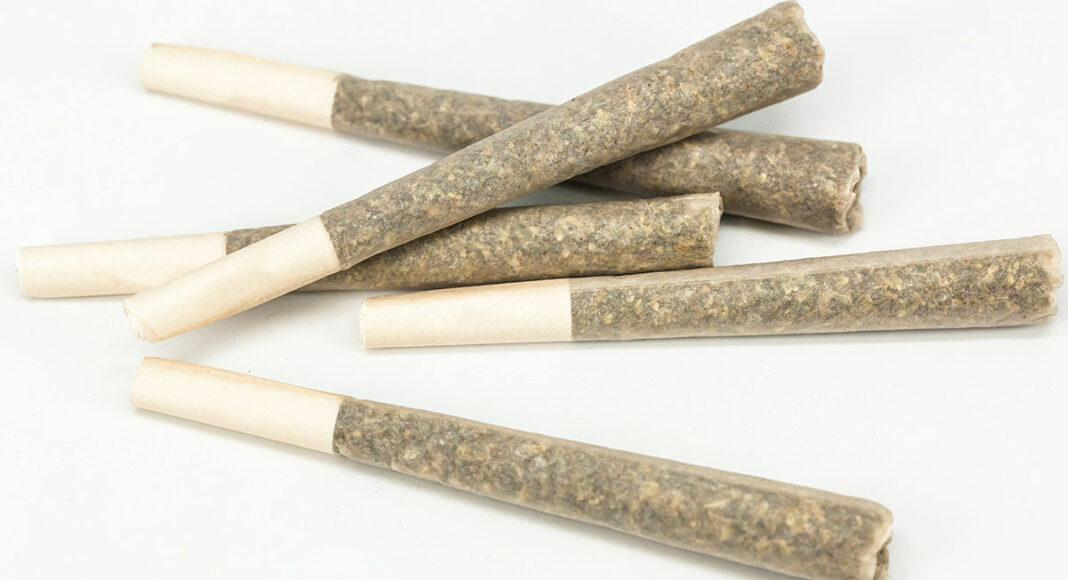First, there was the New Green Rush. In the early days of coronavirus panic buying last month, cannabis dispensaries in Santa Cruz County and around the country were doing brisk business. Then the rush dried up, and dispensaries found themselves staring down the same bleak economic realities that so many businesses are right now.
The crazy thing is that the mainstream media’s message hasn’t changed with that new reality. They’re still reporting on long lines outside dispensaries, even though those lines are now due to social distancing rather than record sales, says Colin Disheroon, president and CEO of Santa Cruz Naturals.
“Here’s what I saw, and I think most of my colleagues would agree: There was a panic buy, a big rush. People were freaking out and bought a bunch. Then that calmed down, and our sales declined pretty dramatically,” Disheroon says. “Media has been pumping it up that dispensaries are crushing it, but all dispensary operators are saying the same thing: Sales are down 20% at least. And the lines out the door are because people have to have six-feet separation.”
There were a number of factors that led to the shift in dispensaries’ fortunes, he says.
“People were stocked up, that was part of it. People were also getting real about, ‘I’m not going out.’ And people who can’t figure out online ordering are frustrated. So there’s kind of this triple whammy going on,” Disheroon says.
Changing how they operate—in the case of Santa Cruz Naturals, going from less than 5% online sales to more than 90% online sales—has been just one of many challenges in a month that also saw shifting orders from the county on how dispensaries could conduct business and emergency implementation of new cleaning and distancing protocols. Like health care and grocery store workers, dispensary employees suddenly found themselves on the front lines of an industry deemed “essential” during the COVID-19 pandemic.
“It’s been rough and pretty stressful,” says Jenna Gallant, marketing director for Treehouse Dispensary. “The primary thing we worried about was the safety of our staff.”
“Whether we remain open all depends on the health of our staff,” says Cole Hembree, owner of Curbside Exchange. “None of us can get tested right now. We have a very small staff. For now, we seem to be OK. But who knows?”
Of course, there’s a certain irony to cannabis dispensaries’ designation during the coronavirus era: They’re still considered illegal by the federal government. Recently, in fact, Disheroon wrote to Assemblymember Mark Stone to lay out how federal measures like Section 280E of the tax code—which prohibits deductions for any business that “consists of trafficking in controlled substances”—are crippling the cannabis industry.
“And now we’re considered ‘essential’ businesses all over the U.S.,” Disheroon says. “So we’re essential business for the state, we’re generating all this tax revenue, and yet at the same time the federal government is still punishing us.”
Deputy County Administrative Officer Melodye Serino grasps the irony, especially at a time when businesses across the country are seeking money from the federal government—money that dispensaries can’t get, which makes their situation all the more precarious.
“The cannabis industry is very unique—they don’t have access to any federal stimulus money,” Serino says. “Dispensaries can’t get small business loans or access any other funds that are available to most other small businesses. They are dependent on customer transactions to survive. If customers stop coming to them, that’s a big problem.”
Disheroon says he is now starting to see sales rebound somewhat, but it’s clear that the cannabis industry is in for a wild ride. He’s getting a lot of calls from customers with questions about the safest way to get their weed. Incredibly, many dispensaries are still seeing clients coming in for very small orders like a single pre-roll (basically a pre-rolled joint). Part of their job now is teaching people how to rethink an established culture in a time of crisis.
“People still see the cannabis experience as a social opportunity,” Disheroon says. “But we’re really encouraging people to stock up and reduce the number of visits—to spend more, and then stay home.”
Click here for a guide to how every Santa Cruz dispensary is operating in the wake of the shelter-in-place mandate.















Great job Hugh. Informative local timely and interest ih ng. All the markers of local journalism at it’s best. Always have enjoyed your stuff.